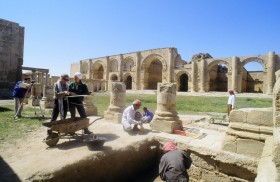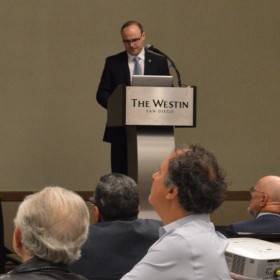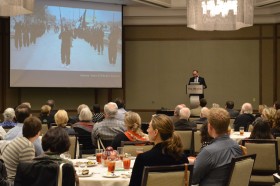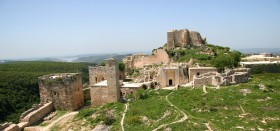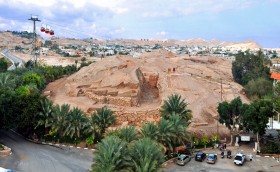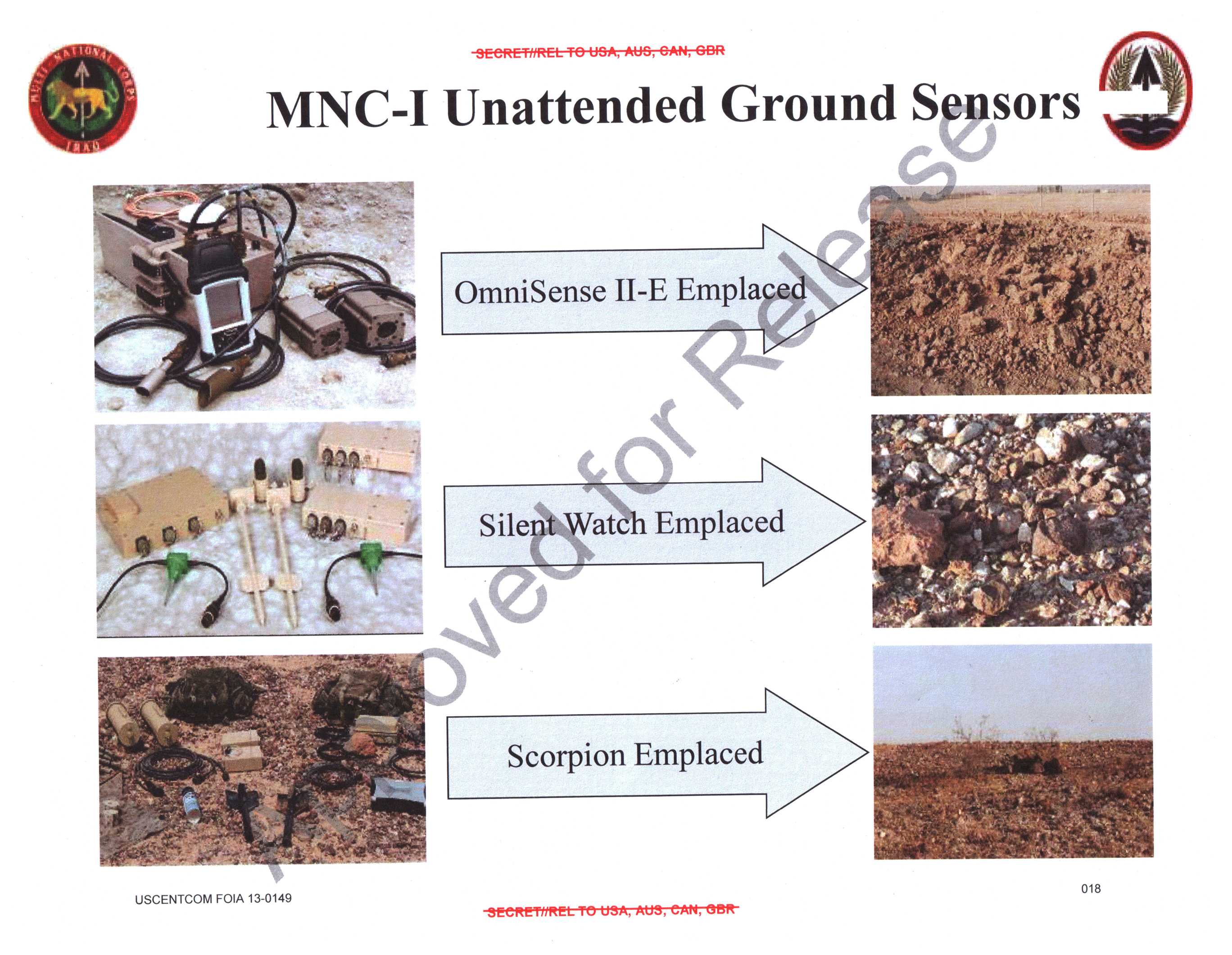Hatra, The Lesser Known Splendors of a Parthian Frontier Town
With threats to the antiquities of Syria and Iraq growing daily, so too does the imperative to document fast disappearing sites. But in Januarywhat historians and archaeologists had feared since IS took […]
“Cultural Heritage Monitoring and the Syrian Heritage Initiative,” Featuring Dr. Michael Danti
In continuing our discussion on the cooperative agreement between the U.S. Department of State and ASOR, known as the Syrian Heritage Initiative, we spoke with Syrian Heritage Initiative […]
“Syrian Heritage Initiative a Natural Fit for ASOR,” Featuring Dr. Susan Ackerman
Last year ASOR had two firsts - our first female president, and a $600,000 cooperative agreement with the Department of State. At theASOR Annual Meeting, I sat down with ASOR President […]
7 Things You Should Know About ASOR’s Syrian Heritage Initiative
Beginning August 4, the American Schools of Oriental Research entered into a cooperative agreement with the U.S. Department of State to monitor, document, and report on cultural heritage damage in Syria.
Egyptian Ministry Signs First Ever Public-Private Partnership Agreement with International Coalition to Protect Egyptian Antiquities
By: Peter Herdrich, Vice Chairman of the ICPEA Washington, DC - The Egyptian Minister of State for Antiquities has signed a public-private partnership agreement with the U.S.-based International Coalition to Protect Egyptian Antiquities (ICPEA) to protect Egyptian cultural heritage sites and antiquities from looting and cultural racketeers. At a signing ceremony on Monday, March 10 in […]
Tell Es-Sultan - A Pilot Project for Archaeology in Palestine
By: Lorenzo Nigro, University of Rome La Sapienza In a few weeks students and young scholars of Rome “La Sapienza” University, along with Palestinian colleagues from the Ministry of Tourism and Antiquities, will return to Tell es-Sultan. The site – identified since late antiquity with Biblical Jericho, the Canaanite city-state of Rwha –is the most visited […]
Hussein’s Head and Importance of Cultural Heritage
By: Michael Press, Research Fellow at the Center of Advanced Spatial Technologies University of Arkansas In recent years archaeologists have sounded a nearly continual warning about threats to cultural heritage, from artifacts to buildings to sites, in the Middle East. This began with Iraq and now, after the events of the Arab Spring, continues especially […]
“Cultural Heritage Protection in Zones of Armed Conflict: Lessons Learned and Future Strategies” with C. Brian Rose (Video)
ASOR is delighted to have the opportunity to share a video of the Plenary Address given at ourAnnual Meeting by C. Brian Rose. The video can be found at the bottom of this post. Rose is the James B. Pritchard Professor of Archaeology at the University of Pennsylvania, a past president of the […]
Heritage sites during Operation Iraqi Freedom Using Freedom of Information Act Requests
By: Levi Keach, University of Nevada, Las Vegas The research I presented at the recent ASOR Annual Meeting in Baltimore, “Heritage sites during Operation Iraqi Freedom Using Freedom of Information Act Requests,” is deeply entangled with my personal journey towards archaeology. While serving with the 1st Infantry Division in Baghdad during the Surge, I came to understand […]
This Is Our City
The Question of Cultural Ownership and Cultural Heritage on Madaba’s West Acropolis By: Debra Foran, Department of Archaeology and Classical Studies Wilfrid Laurier University The question of who owns the past is a difficult one to address. There are often multiple stakeholders and the notion of a site’s importance for a global cultural heritage must […]
Who Owns This Part of the Past? The Cultural Heritage of Tall al-`Umayri, Jordan in Jeopardy
By: Douglas R. Clark, Center for Near Eastern Archaeology, La Sierra University Is culturally significant land private or public property? What happens when a major, signature archaeological site is owned privately? Who owns this part of the past? How does one resolve competing claims of ownership and use? Numerous archaeological sites in Jordan are privately […]
Archaeology and Cultural Heritage in the New Libya
By: Susan Kane and Sam Carrier, Oberlin College The Junedestruction of an ancient necropolis near the UNESCO World Heritage site of Cyrene has drawn international attention to the precarious state of archaeology in Libya. Families living on nearby farms apparently have exerted their claim to ownership by clearing a large area of land […]
